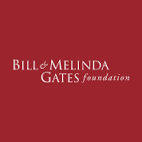Gates Foundation’s Strict Open Access Policy may have Domino Effect
The Bill & Melinda Gates Foundation, a major supporter of health and development research, is to introduce an open access policy next month for the studies it funds that goes further than most other research funders. The policy “will enable other researchers to access the latest evidence and draw on it to advance their own research” to help tackle malnutrition, infectious diseases, and child and maternal mortality, writes Trevor Mundel, the foundation’s president of global health, on the organization's website.
 Trevor Mundel, president of global health, Gates FoundationObservers say the foundation’s move may inspire other funders to adopt similarly stringent open access policies too. But there are also concerns that developing world scientists who receive funds from the foundation may be prevented from publishing research in local journals, some of which lack open access options.
Trevor Mundel, president of global health, Gates FoundationObservers say the foundation’s move may inspire other funders to adopt similarly stringent open access policies too. But there are also concerns that developing world scientists who receive funds from the foundation may be prevented from publishing research in local journals, some of which lack open access options.
From the start of 2017, researchers funded by the foundation will be required to publish their scientific papers and underlying data in publications that allow immediate free access without subscription or payment. The material must also be reusable without permission or fee.
For funding agreements made during a two-year transition period beginning on 1 January 2015, the foundation will allow a 12-month embargo, enabling publishers to restrict access to a paper for up to a year. The foundation says it will pay “reasonable fees” that a publisher requires to publish on these terms.
Other research funders’ policies are “more tentative” and generally allow an embargo of six or 12 months, says Leslie Chan, director of Bioline International, a not-for-profit digital platform for peer-reviewed, open access journals published in developing countries. “A lot of people have called for zero embargo, but [before now] no funding agency had the nerve to be the first to do it” until now, he says.

Open access enthusiasts hope the move will encourage other organizations to follow suit. “A lot of publishers are paying attention. If the Gates Foundation is doing it, other research funders are going to do it,” Chan says.
Karen Dobos, a microbiologist at Colorado State University in the United States, who has received US$1.4 million from the Gates Foundation since 2011 for tuberculosis research, says the foundation’s existing funding practices have already influenced federal funding. “I’ve seen a positive domino effect from the foundation getting involved in tuberculosis, malaria and neglected tropical diseases research, in that even federal agencies adopt some of the metrics that the foundation requires of grantees,” she says.
Although Dobos says the new policy is unlikely to change her publication strategy, as she and her colleagues already favor open access publications, she praises the clarity of the foundation’s rules. “What it does is provide specific guidance for how to deal with open access,” she says. “The burden comes from something that’s vague, so people over- or under-interpret it.”
But Chan is concerned about the requirement to publish results under a certain type of Creative Commons license known as CC-BY that allows users to share and adapt material for any purpose, as long as they give appropriate credit.
“A lot of people say this [requirement] is great because it takes away ambiguity,” he says. “[But] I’m of the opinion that CC-BY … imposes undue constraints on other parts of the world, especially in developing countries.” For instance, if a researcher in Kenya receives funding from the Gates Foundation and wants to publish his findings in a local journal that does not follow the CC-BY policy, the foundation may refuse to allow it, he says.
The policy could have gone even further, Chan adds, by requiring all kinds of research outputs — for example, project reports and policy briefs as well as scientific papers and data — to be made openly accessible. “A lot of knowledge is hidden in this unpublished material,” he says, which can result in the duplication of research and a failure to share lessons.
> Link to the Gates Foundation’s open access policy
| Gates Foundation’s Strict Open Access Policy may have Domino Effect was authored by Tania Rabesandratana and published on 12/18/2014 in SciDev.Net. It is reprinted by Open Health News under the Creative Commons Attribution 2.0 licence UK (CC BY 2.0 UK). The original post can be found here. Image Credits: Gates Foundation |
- Login to post comments